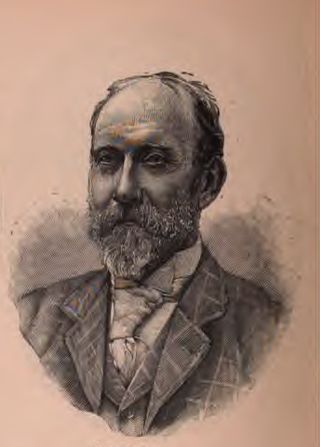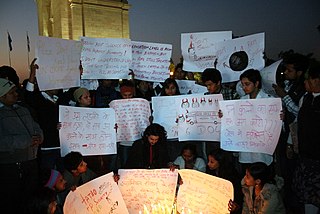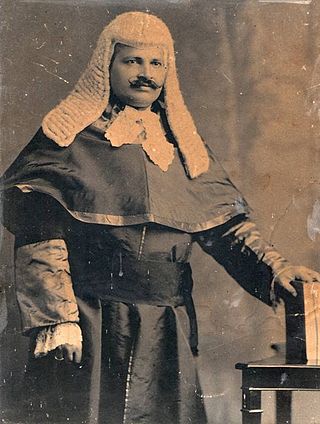| |||||
| Centuries: | |||||
|---|---|---|---|---|---|
| Decades: | |||||
| See also: | List of years in India Timeline of Indian history | ||||
Events in the year 1906 in India.
| |||||
| Centuries: | |||||
|---|---|---|---|---|---|
| Decades: | |||||
| See also: | List of years in India Timeline of Indian history | ||||
Events in the year 1906 in India.
The Uniform Civil Code is a proposal in India to formulate and implement personal laws of citizens which apply on all citizens equally regardless of their religion. Currently, personal laws of various communities are governed by their religious scriptures. Implementation of a uniform civil code across the nation is pursued by India's governing Bharatiya Janata Party. Personal laws cover marriage, divorce, inheritance, adoption and maintenance. While articles 25-28 of the Indian Constitution guarantee religious freedom to Indian citizens and allow religious groups to maintain their own affairs, article 44 expects the Indian state to apply directive principles and common law for all Indian citizens while formulating national policies.

Sir Syed Ahmad Khan, also spelled Sayyid Ahmad Khan, was an Indian Muslim reformer, philosopher, and educationist in nineteenth-century British India.

Mohd. Ahmad Khan v. Shah Bano Begum [1985], commonly referred to as the Shah Bano case, was a controversial maintenance lawsuit in India, in which the Supreme Court delivered a judgment favouring maintenance given to an aggrieved divorced Muslim woman. Then the Congress government enacted a law with its most controversial aspect being the right to maintenance for the period of iddat after the divorce, and shifting the onus of maintaining her to her relatives or the Waqf Board. It was seen as discriminatory as it denied right to basic maintenance available to Muslim women under secular law.
Events in the year 1946 in India.

The legal system of India consists of civil law, common law, customary law, religious law and corporate law within the legal framework inherited from the colonial era and various legislation first introduced by the British are still in effect in modified forms today. Since the drafting of the Indian Constitution, Indian laws also adhere to the United Nations guidelines on human rights law and the environmental law. Personal law is fairly complex, with each religion adhering to its own specific laws. In most states, registering of marriages and divorces is not compulsory. Separate laws govern Hindus including Sikhs, Jains and Buddhist, Muslims, Christians, and followers of other religions. The exception to this rule is in the state of Goa, where a uniform civil code is in place, in which all religions have a common law regarding marriages, divorces, and adoption. On February 7, 2024, the Indian state of Uttarakhand also incorporated a uniform civil code. In the first major reformist judgment for the 2010s, the Supreme Court of India banned the Islamic practice of "Triple Talaq". The landmark Supreme Court of India judgment was welcomed by women's rights activists across India.

Events in the year 1921 in India.

The Indian Councils Act 1909, commonly known as the Morley–Minto or Minto–Morley Reforms, was an act of the Parliament of the United Kingdom that brought about a limited increase in the involvement of Indians in the governance of British India. Named after Viceroy Lord Minto and Secretary of State John Morley, the act introduced elections to legislative councils and admitted Indians to councils of the Secretary of State for India, the viceroy, and to the executive councils of Bombay and Madras states. Muslims were granted separate electorates according to the demands of the Muslim League.
Human rights in India is an issue complicated by the country's large size and population as well as its diverse culture, despite its status as the world's largest sovereign, secular, socialist democratic republic. The Constitution of India provides for fundamental rights, which include freedom of religion. Clauses also provide for freedom of speech, as well as separation of executive and judiciary and freedom of movement within the country and abroad. The country also has an independent judiciary as well as bodies to look into issues of human rights.

The British Raj was the rule of the British Crown on the Indian subcontinent, lasting from 1858 to 1947. It is also called Crown rule in India, or Direct rule in India. The region under British control was commonly called India in contemporaneous usage and included areas directly administered by the United Kingdom, which were collectively called British India, and areas ruled by indigenous rulers, but under British paramountcy, called the princely states. The region was sometimes called the Indian Empire, though not officially.

SirZiauddin Ahmad was an Indian mathematician, parliamentarian, logician, natural philosopher, politician, political theorist, educationist and a scholar. He was a member of the Aligarh Movement and was a professor, principal of MAO College, first pro vice-chancellor, vice chancellor and rector of Aligarh Muslim University, India.

Sir William Wedderburn, 4th Baronet, JP DL was a British civil servant and politician who was a Liberal Party member of Parliament (MP). Wedderburn was one of the founding members of the Indian National Congress. He was also the president of Congress in 1889 and 1910, for the Allahabad session.
In Bangladesh, India, and Pakistan, a tehsildar, talukdar, or mamlatdar is a land revenue officer accompanied by revenue inspectors. They are in charge of obtaining taxes from a tehsil with regard to land revenue. A tehsildar is also known as an executive magistrate of the relevant tehsil. The immediate subordinate of a tehsildar is known as a naib tehsildar.

Feminism in India is a set of movements aimed at defining, establishing, and defending equal political, economic, and social rights and opportunities for women in India. It is the pursuit of women's rights within the society of India. Like their feminist counterparts all over the world, feminists in India seek gender equality: the right to work for equality in wages, the right to equal access to health and education, and equal political rights. Indian feminists also have fought against culture-specific issues within India's patriarchal society, such as inheritance laws.
Events in the year 1908 in India.
Events in the year 1920 in India.
Modern Hindu law is one of the personal law systems of India along with similar systems for Muslims, Sikhs, Parsis, and Christians. This Hindu Personal Law or modern Hindu law is an extension of the Anglo-Hindu Law developed during the British colonial period in India, which is in turn related to the less well-defined tradition of Classical Hindu Law. The time frame of this period of Hindu law begins with the formal independence of India from Great Britain on August 14, 1947, and extends up until the present. While modern Hindu law is heralded for its inherent respect for religious doctrines, many still complain that discrimination still pervades the legal system, though efforts to modernize and increase the legal rights of the marginalized have been made.

Syed Hasan Imam was an Indian politician who served as the President of the Indian National Congress and was elected in September 1918.

Child marriage in India, according to the Indian law, is a marriage where the woman and man both are younger than 21 years of age respectively. Most child marriages involve women, many of whom are poor socio-economic conditions.
Events in the year 1851 in India.

Triple talaq and talaq-e-mughallazah are now-banned means of Islamic divorce previously available to Muslims in India, especially adherents of Hanafi Sunni Islamic schools of jurisprudence. A Muslim man could legally divorce his wife by proclaiming three times consecutively the word talaq.